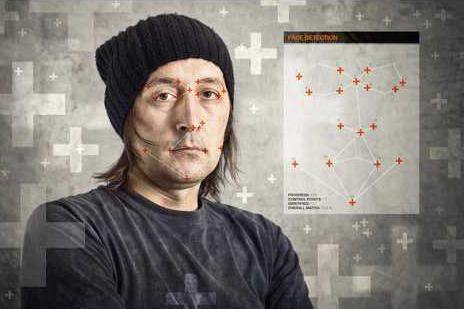An article in The Atlantic recently asked a simple question: If a computer can recognize a child’s face, can it recognize the same face later in life?
Not quite yet, the article asserts, but it’s a question a lot of parents are fretting over as facial recognition technology quickly becomes more mainstream. With millions posting a seemingly constant stream of kid photos on social sites like Facebook or Tumblr, the concern for the life of a child’s digital footprint is an emerging complication of online presence.
News broke in March that Facebook has created software called “DeepFace” that can recognize faces “almost as well as you do,” but is fear of facial recognition software blinding the public to its possibilities?
There’s plenty to be afraid of, says ComplexTech’s J. Duane Hahn, especially since Facebook's billion-plus users can’t all control photos they’ve already uploaded to the site, let alone ones other users could upload.
“Forget tagging: the social network could one day correctly ID you from any photo that’s uploaded by anyone,” Hahn wrote. “DeepFace is far more powerful than the tagging system that the company uses now: it uses ‘deep learning,’ a sector of A.I. that specializes in understanding irregular types of data.”
The issue is further complicated by that fact that “the cloud never forgets,” as Jared Keller of The Atlantic wrote. And work that once would’ve taken massive man hours to complete now takes minutes, thanks to deep online footprints like those left on various social media sites.
“Cloud-based facial recognition services rely on finding publicly available pictures of you online, whether it's a profile image for social networks like Facebook and Google Plus or from something more official from a company website or a college athletic portrait,” Keller wrote.
But what about the good implications? Using this technology, law enforcement could find terrorists or criminals in a crowd, or … make a doorbell.
That’s what facial-recognition pioneer Animetrics is doing: Creating a doorbell with camera and facial recognition capabilities to tell the welcome guests from unwanted intruders.
As Techradar reported, the company is trying to use the technology to improve lives, which CEO Paul Sheupp said might help quash fear of the software’s rapid development.
“I find myself telling people it's not the technology itself to be afraid of when it comes to privacy, stalking and ID theft," he told Techradar.
Other good applications for the technology, Techradar reported, include finding missing pets. Biologists are developing apps that can identify trees from pictures of leaves. Some sites are also using the software for online dating to help people find their “face mates."
With an endless stream of applications, some like Hahn hope people won’t let their fear override facial recognition’s day in the sun.
“Perhaps there's a real reason to hold out hope for a facial recognition-aided future that's not the next great Orwellian data dash after all,” he wrote.
Email: chjohnson@deseretnews.com
Twitter: ChandraMJohnson
Should people be afraid of facial recognition software?





